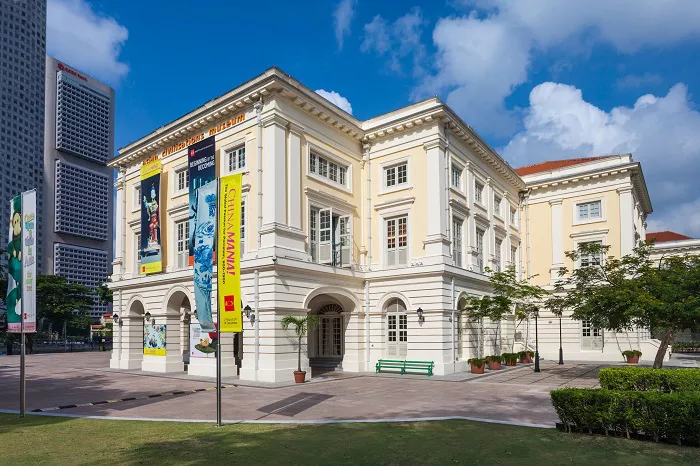Hangzhou, China (April 24, 2025) — The third edition of the UNESCO High-Level Forum for Museums opened on April 24, 2025, in Hangzhou, Zhejiang Province, bringing together over 190 participants from more than 60 countries. This prestigious event, held every few years, serves as a crucial platform for discussions on the evolving role of museums in a rapidly changing world. Experts, policymakers, museum directors, and cultural leaders have convened to explore the future of heritage preservation, technological innovations, and the global tourism industry.
Global Participation and Keynote Insights
The opening ceremony featured impactful keynote addresses from prominent figures, including Ernesto Ottone R., UNESCO’s Assistant Director-General for Culture, and Gao Zheng, China’s Vice Minister of Culture and Tourism. Their speeches underscored the growing significance of museums as dynamic, educational spaces that extend beyond traditional cultural exhibitions. Zhao Cheng, a key governmental official from the Zhejiang Provincial Party Committee, and Yao Gaoyuan, Mayor of Hangzhou, highlighted the city’s cultural importance and its role in fostering global dialogue.
The event’s global scope was emphasized by the attendance of representatives from renowned cultural institutions, such as the National Museum of Colombia and the National Museum of Singapore. Together, they set the stage for collaborative discussions on the future of museums worldwide.
Interactive Sessions and Technological Innovations
Throughout the forum, delegates participated in interactive sessions and field visits that explored critical topics like the integration of digital technology and artificial intelligence (AI) in museums, as well as the evolving role of museums as educational hubs. One of the highlights was the discussion on the future of the Virtual Museum of Looted Artifacts, which explores how museums can engage with sensitive cultural histories in innovative ways.
For the global tourism industry, these developments signal a shift toward more engaging, tech-driven museum experiences that will influence the way cultural destinations are marketed and experienced. Museums are transitioning from static exhibits to interactive, immersive environments that blend technology with education and entertainment. This evolution will likely attract a new generation of travelers who seek more hands-on and innovative cultural encounters.
Impact on Tourism and Global Travelers
The ongoing transformation of museums into interactive, technology-driven spaces will have a profound impact on global tourism. Museums are increasingly being recognized not just as places to observe history, but as immersive, active experiences where visitors can engage with culture in novel ways. Virtual reality (VR) and augmented reality (AR) are already enhancing museum exhibits, offering tourists more enriching and personalized experiences.
Tourism strategies will likely evolve to reflect this shift, with destinations promoting cultural experiences that allow travelers to interact with history and art through cutting-edge technology. As tourists demand more interactive, educational travel experiences, museums will emerge as key players in the tourism sector, offering engaging environments that appeal to a broad range of interests.
Museums as Centers of Cultural Exchange
A significant theme of the forum was the role of museums in fostering lifelong learning and cultural exchange. Museums are increasingly seen as venues for intellectual engagement and global dialogue, providing platforms for educational programs, workshops, and digital learning tools. This shift aligns with broader trends in global tourism, where travelers are seeking destinations that offer more than just traditional sightseeing.
As museums integrate educational components into their offerings, they will become vital spaces for cultural exchange, allowing local communities and international visitors to connect and share their histories, cultures, and traditions. This approach positions museums as central to the future of cultural tourism, bridging gaps between global audiences.
Sustainability and Cultural Policies in Tourism
The discussions at the UNESCO forum also laid the groundwork for the 2025 World Conference on Cultural Policies and Sustainable Development in Spain. The upcoming conference will focus on how cultural institutions can contribute to sustainable development goals (SDGs), promoting cultural heritage preservation and inclusive education while supporting equitable tourism economies.
For the travel industry, this emphasizes the growing demand for responsible, sustainable tourism. Tourists are increasingly conscious of the environmental and social impacts of their travels, and destinations that promote ethical and sustainable cultural experiences will likely appeal to this new generation of travelers. Museums will play a crucial role in raising awareness about sustainability through exhibitions and programs that highlight the importance of preserving cultural and natural heritage.
Promoting Accessibility in Museums
Another key topic discussed at the forum was the need for greater accessibility within museums. As the global tourism industry shifts toward inclusivity, cultural institutions are being encouraged to adopt more accessible features for visitors of all abilities, ages, and economic backgrounds. This includes physical accommodations for people with disabilities, as well as digital accessibility, allowing remote access to museum collections.
By expanding access to their resources through digital platforms, museums can engage global audiences without the need for long-distance travel, further broadening the scope of cultural tourism. This also opens new possibilities for travelers who may not otherwise be able to visit physical museum locations due to mobility or financial constraints.
Looking Ahead: The Future of Cultural Tourism
The third UNESCO High-Level Forum for Museums marks a pivotal moment in the evolution of cultural tourism. As museums continue to embrace technology, sustainability, and inclusivity, they will become central to the global travel experience. Travelers will increasingly seek destinations that offer rich, dynamic cultural encounters—ones that not only showcase history but also provide opportunities for education, interaction, and engagement with the world’s diverse heritage.
With the insights and strategies shared at this forum, the future of museums and cultural tourism looks poised for transformation, emphasizing the importance of responsible travel, technological innovation, and global cultural exchange. The lasting impact of these discussions will shape how travelers experience culture for years to come.

